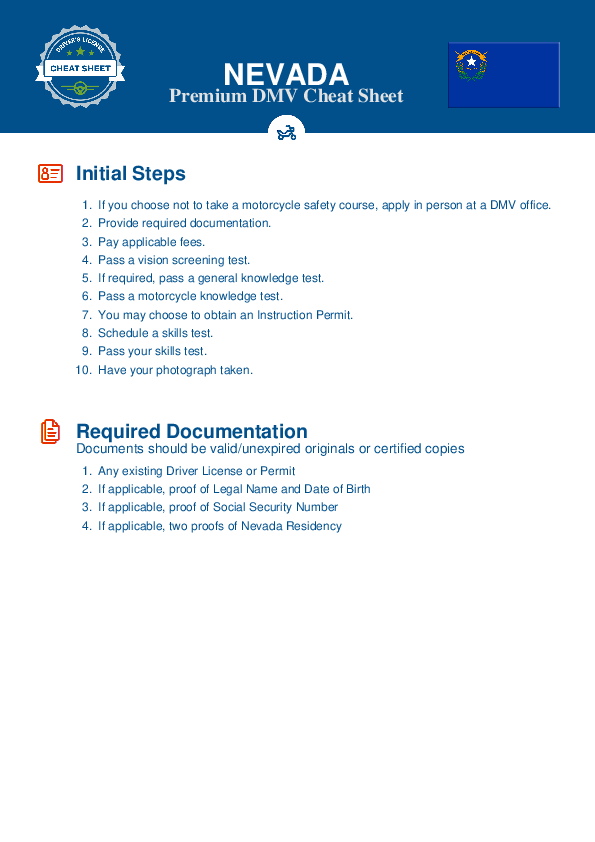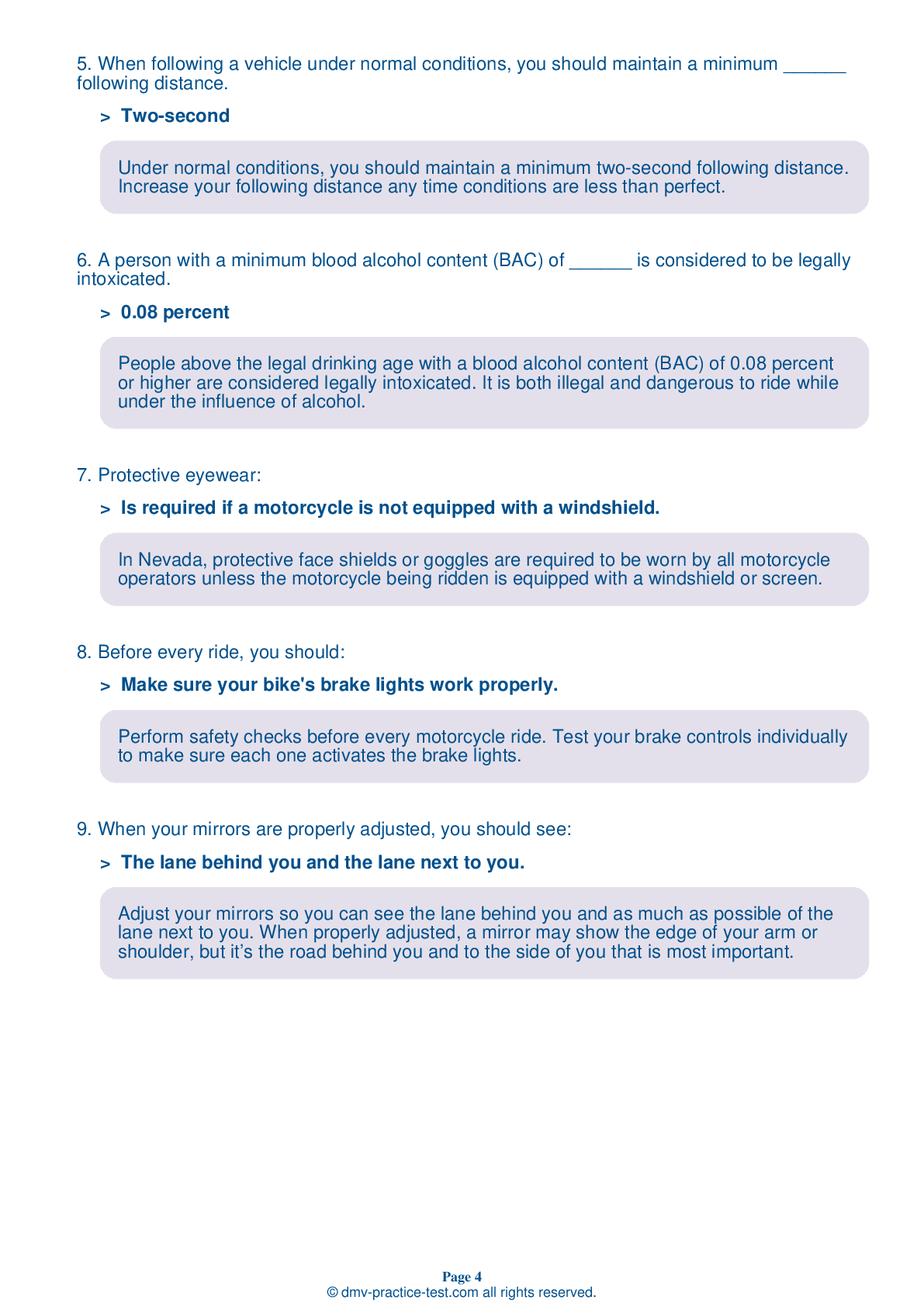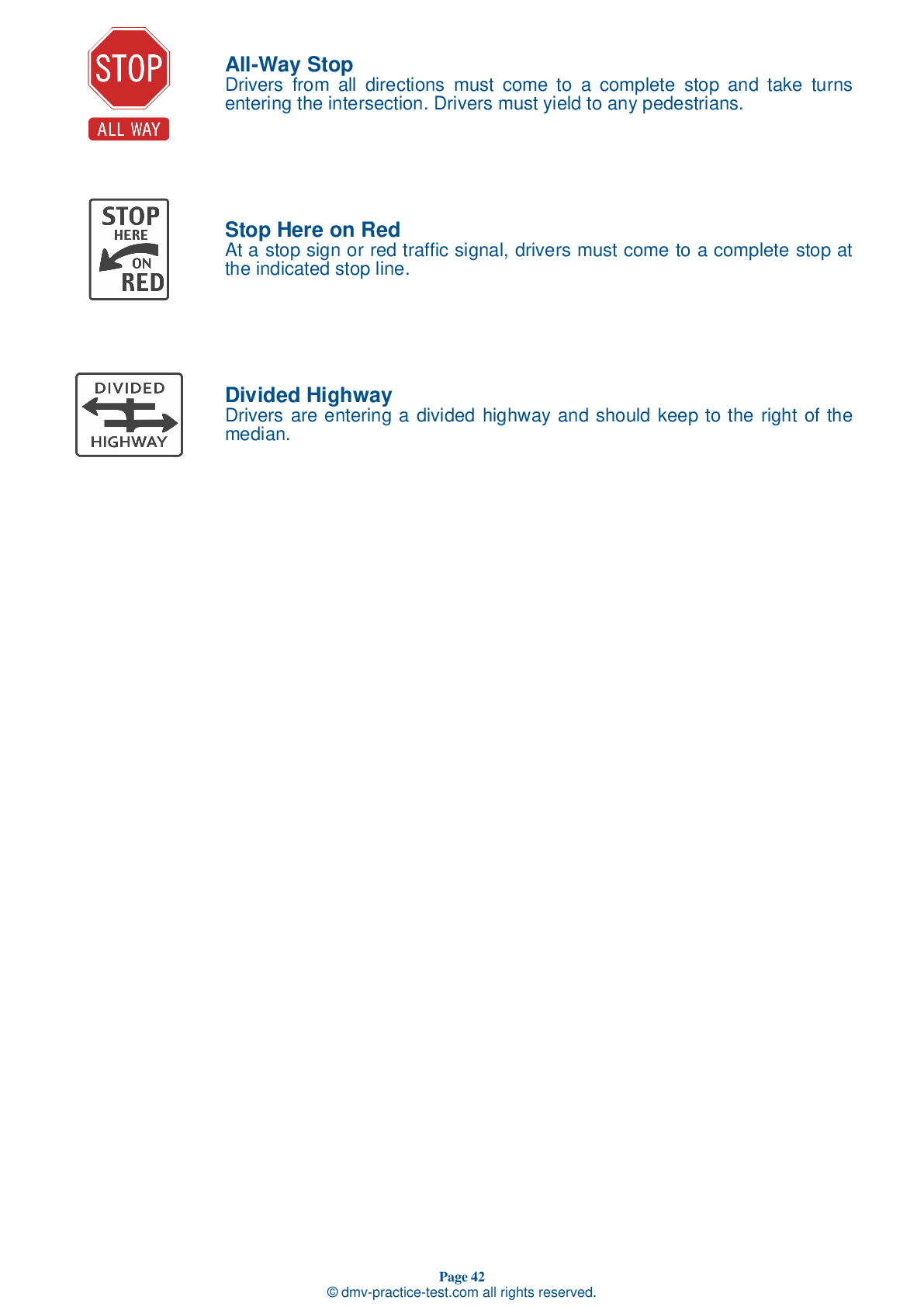Motorcycle Test | License NV 2026 | FREE Online Practice! #2
Take this FREE motorcycle test (license in NV 2026) to check your knowledge of the road rules. To improve your results, download a motorcycle handbook online, study theory, and practice for free on our website. Still worried about how to get a motorcycle license in Nevada in 2026? Check our website for more sample tests, train as much as possible, and boost your grades!
1 . A helmet should not:
You will get the greatest amount of protection from a helmet if it meets U.S. Department of Transportation (DOT) and state standards, fits snugly all the way around, and has no obvious defects. A helmet worn at the time of a crash should be replaced.
2 . Signals on a motorcycle:
You are especially vulnerable as a motorcyclist, so it is very important to use your turn signals to alert others to your intentions. Always use them any time that you plan to change lanes or turn, even if you don't think anyone else is nearby.
3 . When riding at night, a motorcyclist should:
Riding at night can be dangerous because a rider’s ability to see and be seen by fellow motor vehicle operators is limited. It is recommended that riders adjust their riding behavior to compensate for this limited visibility by reducing their speed, maximizing their headlight usage, and increasing their following distance.
4 . When planning a long group ride, which of the following ideas should not be implemented?
When riding in a group, the length of a route and the lengths of segments of travel should be based on the skill level of the least experienced rider. Groups of riders should take regular breaks to reduce fatigue. Inexperienced riders should be placed behind the leader so more experienced riders can keep an eye on them from behind. It is generally best to ride in a staggered formation.
5 . Motorcycle riders should choose footwear with soles that:
Choose riding boots or shoes that are high and sturdy enough to cover and support your ankles. Choose footwear with soles made of hard, durable, slip-resistant material.
6 . When riding in groups, motorcyclists:
While it is not the preferred riding formation, Nevada law allows two motorcycles to ride abreast in the same lane if both riders consent to the formation. A staggered riding formation is generally the safest option when riding in a group.
See the exact questions that will be on the 2026 Nevada DMV exam.
99.2% of people who use the cheat sheet pass the FIRST TIME
Jeneen was tired of paying $5/gallon. She got herself a scooter that required the motorcycle license. She studyed the motorcycle test cheat sheet and passed her test the next day!
Christopher tells us how he knew nothing prior to obtaining the motorcycle study guide, and he only got one question wrong because he clicked on the wrong answer by mistake.



